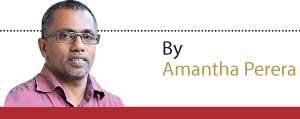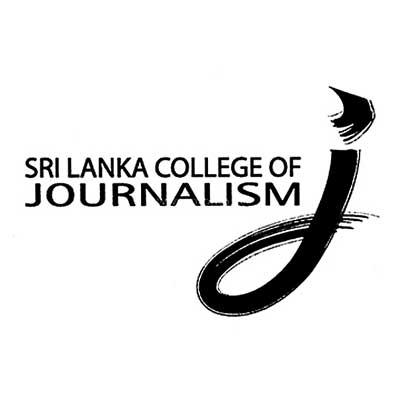23 Feb 2022 - {{hitsCtrl.values.hits}}
I remember the first time I conducted a workshop for journalists in Sri Lanka. This was some time in mid 2004, I was with the late Thilak Jayarathne, the founder director of the Sri Lanka College of Journalism. Thilak was unconventional to say the least. But he was effective and efficient. Sadly, in fighting, personal agendas and lack of support from the board forced Thilak to depart after one year at the college.
2004, I was with the late Thilak Jayarathne, the founder director of the Sri Lanka College of Journalism. Thilak was unconventional to say the least. But he was effective and efficient. Sadly, in fighting, personal agendas and lack of support from the board forced Thilak to depart after one year at the college.
"There is some good in all this work. The trainings, if nothing else provides journalists to come together. If properly structured and delivered they can be impactful. Which is where we run into the problem. How do we structure this type of work and who delivers them? Most of us are in agreement that foreign expats without any ground awareness have proven to be a costly, yet non-productive prospect"
|
Thilak Jayarathne |
We were in Anuradhapura to train a group of provincial correspondents. The training was held at one of the best hotels and the participants walked in as if they not only were the guests of honour but that everybody else was there to serve them.
Halfway through the training, I sensed that the group was getting agitated. They were soon very forthcoming as to why they were behaving antagonistic, towards me especially. One gentleman, quite schoolmaster-looking, stood up and point blank accused that they felt it was an insult to them that I was their trainer.
The issue was that I was not well known, and this guy listed name after name of who’s who in the field. Thilak probably anticipated this. He then broke for lunch and during the interval printed my CV and distributed to the participants. They were given the option of either staying on with the designated trainer or leaving the workshop. All of them stayed and they were quite cooperative too.
It has been a long time since this incident, but it has always stayed in my mind. In retrospect it was less a question of my suitability to do the trainer’s job than I not having the popularity reach. I have had a few more of the same experience since then.
"In all my years in journalism, there has been this consistent dialogue about skills enhancement. When I started there were no Sri Lankan academics or trainers. Almost all trainings were conducted by expats"
The gentleman who was recruited to look after Sinhala medium students at the SLCJ, flatly refused Thilak suggestion that he too attend my training sessions. He told Thilak that he was better suited to do the job than me. He was a tuition master during after-hours.
More recently, in Matara, a candidate left the training because apparently, I had eaten the last piece of fish available at the buffet. He went home and had the gumption to SMS the organizers inquiring about the per-diem he was due.
In all my years in journalism, there has been this consistent dialogue about skills enhancement. When I started there were no Sri Lankan academics or trainers. Almost all trainings were conducted by expats.
there were no Sri Lankan academics or trainers. Almost all trainings were conducted by expats.
I had a long conversation with a colleague in Colombo who told me trainings were mushrooming in Sri Lanka. There are several permanent and semi-permanent operations based in-country doing this. I have worked with most of them.
There is some good in all this work. The trainings, if nothing else provides journalists to come together. If properly structured and delivered they can be impactful. Which is where we run into the problem. How do we structure this type of work and who delivers them? Most of us are in agreement that foreign expats without any ground awareness have proven to be a costly, yet non-productive prospect.
"The alternative to that is how do we channel local resources for this. For that we need trained and qualified trainers. A big miss in Sri Lanka is the lack of properly accredited trainers for journalism training"
The alternative to that is how do we channel local resources for this. For that we need trained and qualified trainers. A big miss in Sri Lanka is the lack of properly accredited trainers for journalism training. We tend to think and support the idea that years and years on the job is equivalent to expertise to deliver trainings and academic level course work.
There is a new crop of media professionals in Sri Lanka who have devoted time and energy to research and academic work. Fortunately, some of them work in the vernacular. We need to rope them into these trainings and skills development work if they are to prove successful and relevant.
The writer is a journalism researcher and a writer. He can be contacted on [email protected]
27 Nov 2024 6 hours ago
27 Nov 2024 7 hours ago
27 Nov 2024 7 hours ago
27 Nov 2024 8 hours ago
27 Nov 2024 8 hours ago